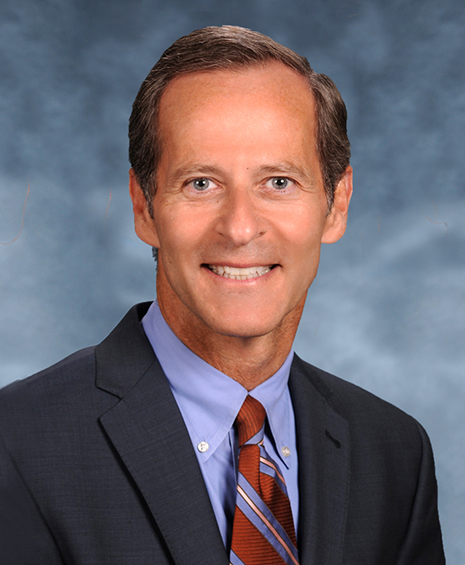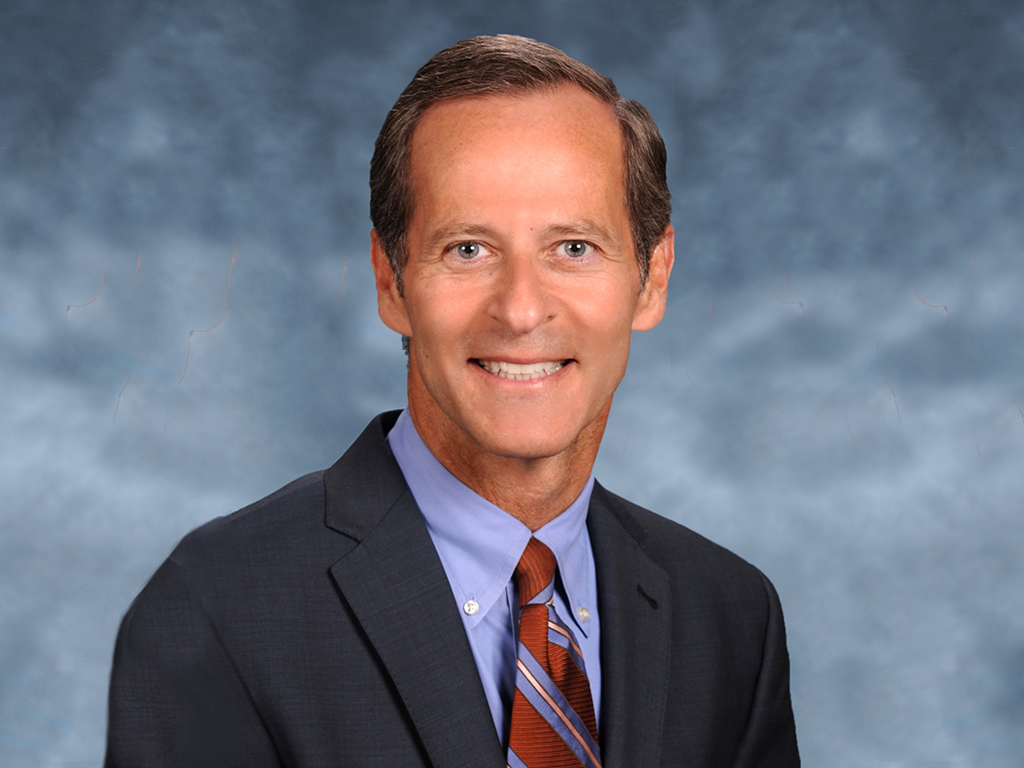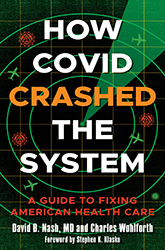
$15,001 - $20,000
Keynote fee falls within this range. For exact fee, please contact us.
Pennsylvania
Request Availability for David Nash
David B. Nash is the Founding Dean Emeritus, and he remains on the full-time faculty as the Dr. Raymond C. and Doris N. Grandon Professor of Health Policy, at the Jefferson College of Population Health (JCPH). His 11-year tenure as Dean completes more than 33 years on the University faculty. JCPH is dedicated to developing healthcare leaders for the future.
A board-certified internist, Dr. Nash is internationally recognized for his work in public accountability for outcomes, physician leadership development, and quality-of-care improvement. More recently, he achieved wide acclaim for his Covid19 thought leadership and served as the Chief Health Advisor for the Philadelphia Convention and Visitor’s Bureau (PHL-CVB) during the pandemic.
Repeatedly named to Modern Healthcare’s list of Most Powerful Persons in Healthcare, his national activities cover a wide scope. Dr. Nash is a principal faculty member for quality of care programming for the American Association for Physician Leadership (AAPL). He received the AAPL Inaugural Lifetime Achievement Award in June of 2023 having taught 6,000 members in person.
Dr. Nash is a recognized governance expert in both the public and private sectors. He has chaired the Technical Advisory Group (TAG) of the Pennsylvania Health Care Cost Containment Council (HC4) for more than 25 years and he is widely recognized as a pioneer in the public reporting of outcomes. Dr. Nash has been a hospital trustee for 20 years. He served on the Board of Trustees of Catholic Healthcare Partners (now Mercy Partners), in Cincinnati, OH (1998–2008), where he was the inaugural chair of the board committee on Quality and Safety. He concluded his tenure (2009-2017) on the board of Main Line Health, a four-hospital system in suburban Philadelphia, PA, where he also chaired the board committee on Quality and Safety. He now serves on the board of the Geisinger Commonwealth School of Medicine (GCSOM). In 2019, he joined the AMGA Foundation Board in Arlington, VA. Finally, he joined the board of CAHME – the Commission on Accreditation of Healthcare Management Education in 2021.
In the for-profit sector, he very recently completed nearly a decade as a member of the Board of Directors for Humana, Inc., one of the nation’s largest publicly traded healthcare companies. In 2014 he joined the board of InfoMC, a leading information technology company in suburban Philadelphia. He is on the health care advisory board for Arsenal Capital Partners in NYC and just joined the board of MaxHealth, a portfolio company of Arsenal. Finally, he is a board member of FOX Rehab, a portfolio company of Blue Wolf Capital.
Dr. Nash has received many awards in recognition of his achievements over the past three decades. He received the top recognition award from the Academy of Managed Care Pharmacy (1995), the Philadelphia Business Journal Healthcare Heroes Award (1997), and was named an honorary distinguished fellow of the American College of Physician Executives (now AAPL) in 1998. In 2006 he received the Elliot Stone Award for leadership in public accountability for health data from NAHDO. Wharton honored Dr. Nash in 2009 with the Wharton Healthcare Alumni Achievement Award and in 2012 with the Joseph Wharton Social Impact Award. Also in 2012, he received the Philadelphia Business Journal award for innovation in medical education. In 2021, he was honored as a top national communicator for his work with the Philadelphia Convention and Visitors Bureau and he received the Champion Award from the regional Health Information Exchange (HIE).
Dr. Nash’s work is well known through his many publications, public and virtual appearances, and online column on MedPage Today. He has authored more than 100 peer-reviewed articles and edited 25 books, including The Healthcare Quality Book, Demand Better, and most recently his best selling book, How Covid Crashed the System: A Guide to Fixing American Healthcare. He was the inaugural Deputy Editor of Annals of Internal Medicine (1984-1989). Currently, he is Editor-in-Chief of the American Journal of Medical Quality and Population Health Management.
Dr. Nash received his BA in economics (Phi Beta Kappa) from Vassar College; his MD from the University of Rochester School of Medicine and Dentistry and his MBA in Health Administration (with honors) from the Wharton School at the University of Pennsylvania. While at Penn, he was a former Robert Wood Johnson Foundation Clinical Scholar and Medical Director of a nine-physician faculty group practice in general internal medicine. He has received honorary doctorates and awards from Salus University in Philadelphia, GCSOM, the University of Rochester and Rowan University / Cooper Medical School. Dr. Nash has delivered a score of endowed and named lectures across the country and has given more than 15 commencement addresses.
Dr. Nash lives in Ardmore, PA, with his wife of 43 years, Esther J. Nash, MD. They have three adult children and three grandchildren. He enjoys tennis, jogging, biking, and yoga. Together, the Drs. Nash have endowed an eponymous annual prize, across all learners throughout Jefferson, in healthcare quality and safety (which debuted in October 2021). This prize is the first of its kind in the nation.
Medical Errors & Clinical Quality Issues: Demand Better! Revive Our Broken Healthcare System
The Quality Solution
Population Health: Creating a Culture of Wellness
Practicing Medicine in the 21st Century
Request Availability for David Nash
DAVID NASH, MD

Pennsylvania
$15,001 - $20,000
Keynote fee falls within this range. For exact fee, please contact us.
David B. Nash is the Founding Dean Emeritus, and he remains on the full-time faculty as the Dr. Raymond C. and Doris N. Grandon Professor of Health Policy, at the Jefferson College of Population Health (JCPH). His 11-year tenure as Dean completes more than 33 years on the University faculty. JCPH is dedicated to developing healthcare leaders for the future.
A board-certified internist, Dr. Nash is internationally recognized for his work in public accountability for outcomes, physician leadership development, and quality-of-care improvement. More recently, he achieved wide acclaim for his Covid19 thought leadership and served as the Chief Health Advisor for the Philadelphia Convention and Visitor’s Bureau (PHL-CVB) during the pandemic.
Repeatedly named to Modern Healthcare’s list of Most Powerful Persons in Healthcare, his national activities cover a wide scope. Dr. Nash is a principal faculty member for quality of care programming for the American Association for Physician Leadership (AAPL). He received the AAPL Inaugural Lifetime Achievement Award in June of 2023 having taught 6,000 members in person.
Dr. Nash is a recognized governance expert in both the public and private sectors. He has chaired the Technical Advisory Group (TAG) of the Pennsylvania Health Care Cost Containment Council (HC4) for more than 25 years and he is widely recognized as a pioneer in the public reporting of outcomes. Dr. Nash has been a hospital trustee for 20 years. He served on the Board of Trustees of Catholic Healthcare Partners (now Mercy Partners), in Cincinnati, OH (1998–2008), where he was the inaugural chair of the board committee on Quality and Safety. He concluded his tenure (2009-2017) on the board of Main Line Health, a four-hospital system in suburban Philadelphia, PA, where he also chaired the board committee on Quality and Safety. He now serves on the board of the Geisinger Commonwealth School of Medicine (GCSOM). In 2019, he joined the AMGA Foundation Board in Arlington, VA. Finally, he joined the board of CAHME – the Commission on Accreditation of Healthcare Management Education in 2021.
Read More
In the for-profit sector, he very recently completed nearly a decade as a member of the Board of Directors for Humana, Inc., one of the nation’s largest publicly traded healthcare companies. In 2014 he joined the board of InfoMC, a leading information technology company in suburban Philadelphia. He is on the health care advisory board for Arsenal Capital Partners in NYC and just joined the board of MaxHealth, a portfolio company of Arsenal. Finally, he is a board member of FOX Rehab, a portfolio company of Blue Wolf Capital.
Dr. Nash has received many awards in recognition of his achievements over the past three decades. He received the top recognition award from the Academy of Managed Care Pharmacy (1995), the Philadelphia Business Journal Healthcare Heroes Award (1997), and was named an honorary distinguished fellow of the American College of Physician Executives (now AAPL) in 1998. In 2006 he received the Elliot Stone Award for leadership in public accountability for health data from NAHDO. Wharton honored Dr. Nash in 2009 with the Wharton Healthcare Alumni Achievement Award and in 2012 with the Joseph Wharton Social Impact Award. Also in 2012, he received the Philadelphia Business Journal award for innovation in medical education. In 2021, he was honored as a top national communicator for his work with the Philadelphia Convention and Visitors Bureau and he received the Champion Award from the regional Health Information Exchange (HIE).
Dr. Nash’s work is well known through his many publications, public and virtual appearances, and online column on MedPage Today. He has authored more than 100 peer-reviewed articles and edited 25 books, including The Healthcare Quality Book, Demand Better, and most recently his best selling book, How Covid Crashed the System: A Guide to Fixing American Healthcare. He was the inaugural Deputy Editor of Annals of Internal Medicine (1984-1989). Currently, he is Editor-in-Chief of the American Journal of Medical Quality and Population Health Management.
Dr. Nash received his BA in economics (Phi Beta Kappa) from Vassar College; his MD from the University of Rochester School of Medicine and Dentistry and his MBA in Health Administration (with honors) from the Wharton School at the University of Pennsylvania. While at Penn, he was a former Robert Wood Johnson Foundation Clinical Scholar and Medical Director of a nine-physician faculty group practice in general internal medicine. He has received honorary doctorates and awards from Salus University in Philadelphia, GCSOM, the University of Rochester and Rowan University / Cooper Medical School. Dr. Nash has delivered a score of endowed and named lectures across the country and has given more than 15 commencement addresses.
Dr. Nash lives in Ardmore, PA, with his wife of 43 years, Esther J. Nash, MD. They have three adult children and three grandchildren. He enjoys tennis, jogging, biking, and yoga. Together, the Drs. Nash have endowed an eponymous annual prize, across all learners throughout Jefferson, in healthcare quality and safety (which debuted in October 2021). This prize is the first of its kind in the nation.

